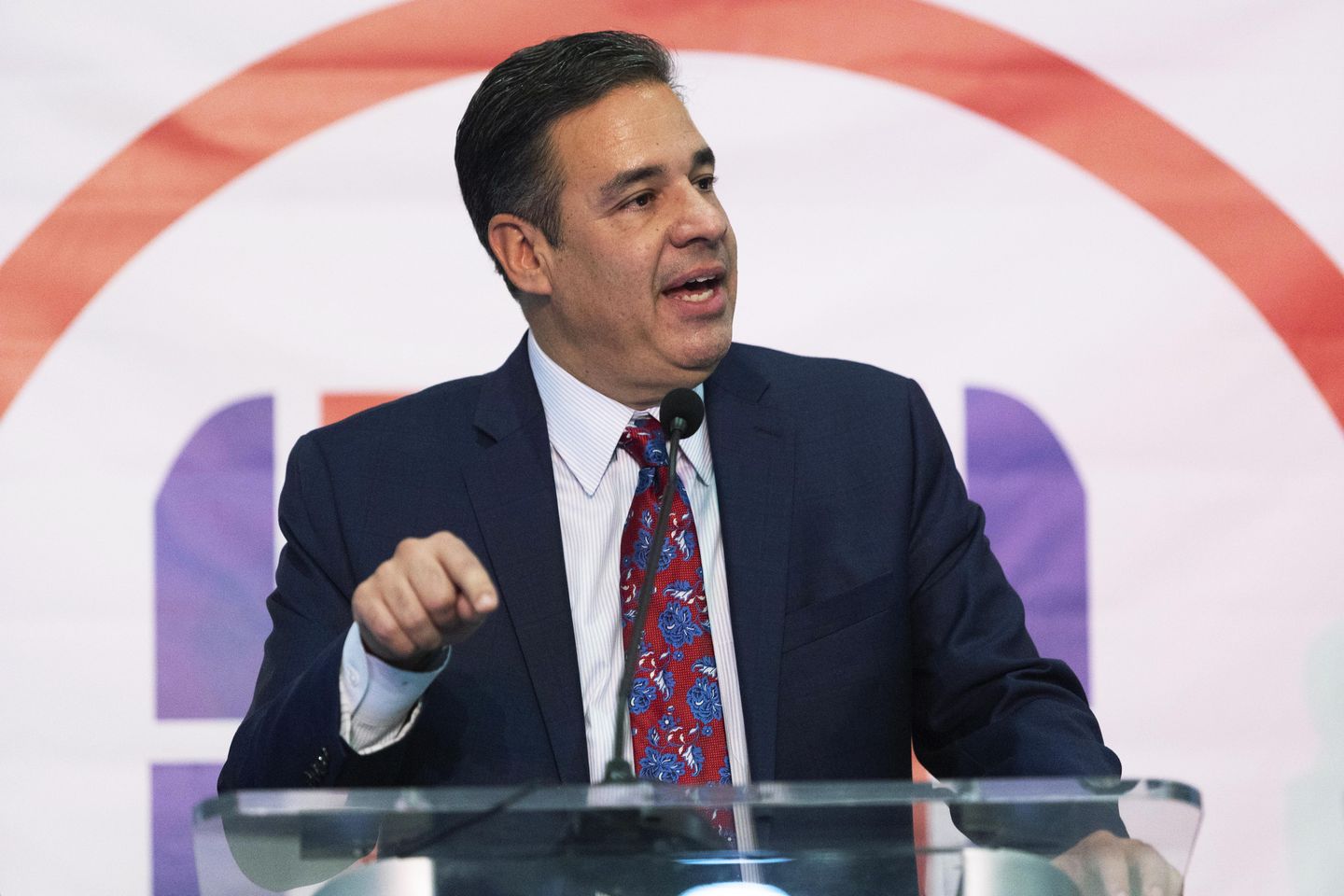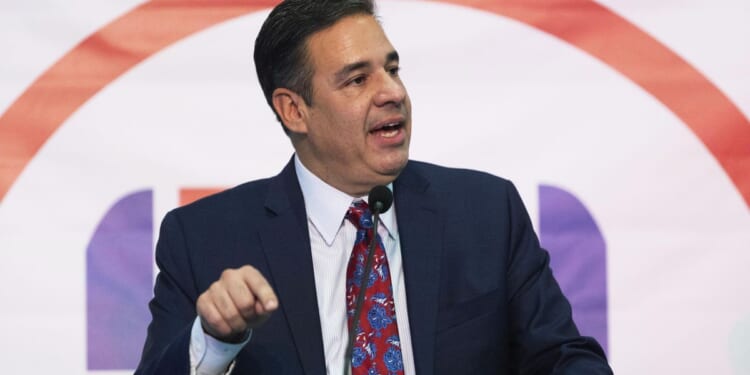
Idaho Attorney General Raul Labrador says the Supreme Court is poised to bolster state voters when it rules on his office’s appeal of a lower court ruling that supported what he calls the Department of Justice’s “political” attack on Idaho’s abortion ban.
“It would be tremendous for the people of Idaho to be successful in this and to protect the state law. The people of Idaho had spoken on this through their elected representatives,” Mr. Labrador said Wednesday in an interview. “It is important to know that the Biden administration’s lawless manipulation of [the Emergency Medical Treatment and Labor Act] will endanger the life of women and unborn children.”
In the wake of the Supreme Court’s 2022 ruling in Dobbs v. Jackson Women’s Health Organization that returned jurisdiction on abortion to the states, Idaho enacted the Defense of Life Act, which penalizes doctors for performing an abortion unless it is done to prevent the woman from dying.
The Department of Justice sued Idaho over the law, citing the Emergency Medical Treatment and Labor Act. The DOJ argued that the federal law supersedes the state’s law because EMTALA requires hospitals that receive Medicare funds to provide stabilizing care to patients in emergency rooms, including abortions to ensure a woman won’t have complications or impairments.
The 9th U.S. Circuit Court of Appeals ruled in favor of the Justice Department, upholding a lower court injunction that halted the state from enforcing its law.
The Supreme Court put the injunction on hold, and the justices agreed to hear Idaho’s appeal this month.
Mr. Labrador accuses the Justice Department of “forum shopping” to challenge pro-life legislation in a jurisdiction that backs Planned Parenthood, the nation’s largest abortion provider. He notes that the EMTALA does not refer to abortion but was amended to include protecting pregnant women and the life of the unborn.
“After Dobbs, the United States adopted the novel view that EMTALA creates a federal right to abortion in emergency rooms, even though EMTALA is silent on abortion and actually requires stabilizing treatment for the unborn children of pregnant women. The United States’ position conflicts with the universal agreement of federal courts of appeals that EMTALA does not dictate a federal standard of care or displace state medical standards,” he wrote in his court filing.
Since the Dobbs ruling, more than a dozen states have outlawed abortion.
Mr. Labrador’s case has been coupled with a filing by Mike Moyle, speaker of the Idaho House, that argues that the DOJ’s lawsuit was “unprecedented.”
“It is hard to imagine a tinier mouse hole or a larger elephant than what the Government has contrived here,” Mr. Moyle’s filing reads. “EMTALA says nothing about abortion. Congress has not silently mandated abortions that it won’t pay for, especially not in a statute amended to protect a pregnant mother’s unborn child.”
Texas’ abortion law was upheld by courts after it was challenged on EMTALA grounds, setting up a split in rulings among courts.
In its filings against Mr. Moyle and Mr. Labrador, the Justice Department has argued that EMTALA requires hospitals to offer abortion to women in emergency situations.
“Pregnant women can experience emergency medical conditions that threaten their lives or risk severe and lasting harms, including sepsis, uncontrollable bleeding, kidney failure, and loss of fertility. When a woman experiencing such an emergency condition presents in a Medicare-funded hospital, the Emergency Medical Treatment and Labor Act (EMTALA) requires the hospital to offer ‘necessary stabilizing treatment,’” Solicitor General Elizabeth Prelogar wrote in one filing. “In some cases, the medically necessary care is termination of the pregnancy.”
The joined cases — Idaho v. United States and Moyle v. United States — will be argued together on April 24.
A decision is not expected immediately. A ruling should come by the end of June, when the high court wraps up its term.












